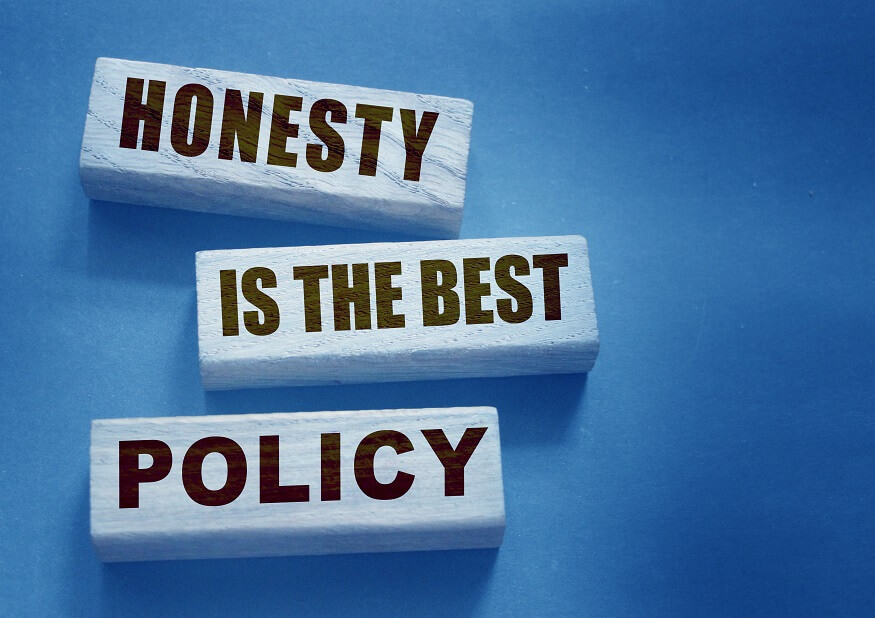Ways to Teach the Importance of Honesty to Kids

As parents, it is vital to teach your children to be truthful and honest individuals. Today, when people often prioritize convenience and self-interest over honesty, instilling the value of truthfulness in your child has become even more crucial.
Honesty is not just about avoiding lies; it is about building a foundation of trust, integrity, and authenticity. This blog post discusses why it is essential to teach the importance of honesty to kids, especially during their school years.
Uncover The Importance of Honesty
Parents want to teach children important values that will help them grow up to be successful and happy individuals. Honesty is one such value that is essential in personal and social development. When children learn to be honest, they not only avoid telling lies but also create an environment of trust and respect around them.
- Honesty helps build genuine relationships where children feel safe expressing their true feelings and thoughts. This kind of transparency is necessary for their emotional and mental well-being.
- Honesty also helps in creating a functioning community where everyone is accountable and ethical. By teaching our kids the importance of honesty, we are preparing them to navigate the world with confidence and moral clarity.
- Honest children grow into trustworthy adults, which is fundamental in all relationships. Children who value honesty tend to have higher self-esteem and are respected by others.
- Honesty also fosters problem-solving skills, where children can seek help and learn to address issues constructively. In the long run, honesty equips children for real-world success, whether in personal relationships or professional environments.
- Honesty helps in developing a strong moral compass, where children learn to differentiate between right and wrong and make better decisions in life.
Ways to Teach the Importance of Honesty to Kids
Teaching honesty to kids is an important and ongoing process. But what are the ways to teach the importance of honesty to kids? Let’s explore in the section below!
There are some effective tips to help them learn this vital trait:
Be Honest Yourself:
You are your child’s first and most influential teacher. When you’re honest in your daily life, your child learns to value and copy this behavior. Talk about your mistakes and show your kids that it’s okay to make mistakes. This helps them understand that honesty, even when it’s hard, is the right thing to do.
Praise Honesty:
When your child tells the truth, especially in tough situations, let them know you appreciate their honesty. This encourages them to feel good about telling the truth instead of lying. But make sure not to overdo it.
Avoid Negative Labels:
Don’t call your child a liar even when they lie. Instead, talk about the behavior and why it’s not okay to lie. Help them understand why telling the truth is important and why lying can hurt relationships.
Consequences of Lying:
Talk to your kids about what could happen if they don’t tell the truth. Let them know that lying can damage relationships and make people not trust them. Use examples they can understand.
Fun Activities:
Play games and do activities that teach honesty. Games that require following rules and being honest in gameplay can be helpful. Talk about honesty and why it’s important during these activities.
The Pros and Cons of Honesty
Will telling the truth always help your child? Or do they also, like every other thing, come with cons? Let’s check out the pros and cons of honesty below.
Pros of Honesty
Let’s check out how honesty can benefit your child.
- Trust Building: One of the most significant benefits of honesty is the establishment of trust. In both personal and professional relationships, trust is fundamental, and it starts with honesty.
- Moral Integrity: Honesty is a key component of moral integrity. It shapes individuals who are ethical, responsible, and respected in their community.
- Emotional Health: Being honest allows for emotional authenticity. It enables individuals to express their true feelings and thoughts, leading to healthier emotional well-being.
- Stronger Relationships: Honesty fosters deeper and more meaningful relationships. When people are honest with each other, they create bonds based on mutual respect and understanding.
- Social Harmony: In a broader sense, honesty contributes to social harmony. It creates a society where people can rely on each other, enhancing cooperation and mutual support.
Cons of Honesty
While honesty has many benefits, it also comes with challenges:
- Complexity in Sensitive Situations: Honesty can be complex for a little child, especially in situations where the truth might hurt someone’s feelings or cause conflict.
- Risk of Oversharing: Sometimes, honesty can lead to oversharing personal information, which may not always be appropriate or necessary.
However, it’s important to note that the positives of honesty far outweigh these challenges. By teaching children to have faith in honesty with sensitivity and understanding, you prepare them to use this virtue wisely and effectively.
One of the most enduring gifts you can give your children is the understanding and practice of honesty. It’s about more than just teaching them not to lie; it’s about nurturing a character grounded in integrity and trust. You’re setting your children up for a life of meaningful relationships, self-respect, and responsible citizenship by instilling the importance of honesty from a young age.
At Billabong High International School, we prioritize nurturing core values like honesty to prepare our students to be responsible citizens. Join us to explore our programs and celebrate the virtue of honesty.













